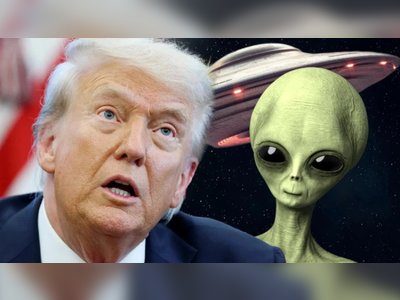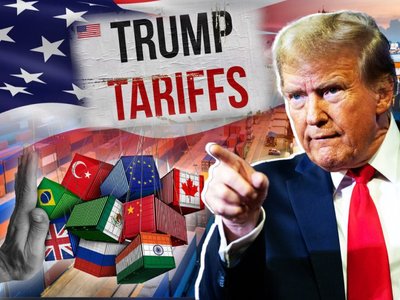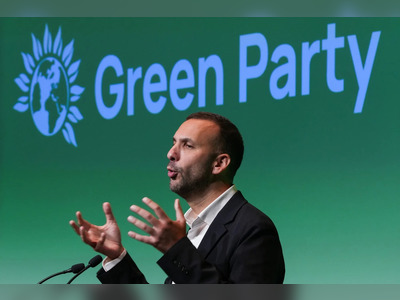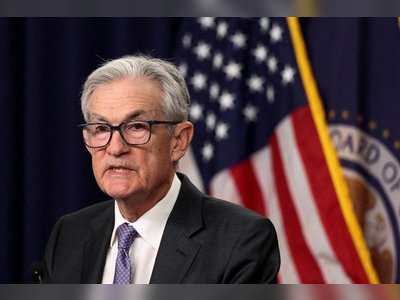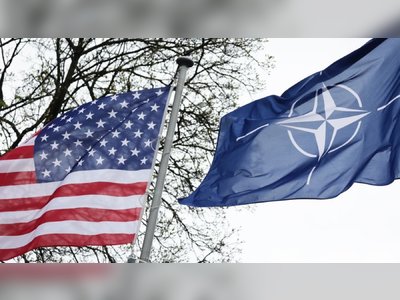Geopolitical Ramifications of Trump's Return: Insights on U.S.-European Relations
An analysis of the first 45 days of Donald Trump's second term as U.S. President and its impact on transatlantic relations.
Bruno Tertrais, the Deputy Director of the Foundation for Strategic Research and author, has provided an assessment of the geopolitical consequences resulting from the first 45 days of Donald Trump’s second term as President of the United States, which began on January 20, 2025. Tertrais notes that prior to Trump’s re-election, he had predicted an even more disruptive second term than the first, fueled by Trump's belief that his 2020 loss was illegitimate.
This time, he appears to be acting in concert with Vice President J.D. Vance and tech entrepreneur Elon Musk, suggesting a more ideologically driven agenda.
In light of Trump’s actions and statements, questions have arisen regarding the future of the North Atlantic Treaty Organization (NATO).
While NATO remains one of the most institutionalized military alliances in history, concerns linger about the sustainability of U.S. leadership within the alliance under Trump’s administration.
Speculation includes scenarios ranging from a passive U.S. involvement, an increasingly adversarial relationship, or even a complete withdrawal from NATO.
Tariffs and economic tensions have emerged anew, with Trump expressing aggression towards U.S. allies such as Canada and Denmark, particularly regarding trade relations and strategic resources like Greenland.
Although historical rivalries exist in sectors like defense and aerospace between Europe and the United States, the evolution of these relationships raises significant concerns about the reliability of the U.S. as a steadfast ally.
The situation in Ukraine also remains significant, with ongoing debates about U.S. military aid.
While current discussions focus on a potential pause in assistance, any decision to halt intelligence cooperation could severely hinder Ukraine's military operations, particularly in conducting strikes within Russian territory.
Observers are closely monitoring these developments, especially considering the implications for Ukraine's defense capabilities.
The European Union has indicated a willingness to enhance its military support to Ukraine, implying that it could compensate for any American shortfalls in military supplies.
However, the EU faces challenges in matching U.S. intelligence capabilities, which could impact overall effectiveness in military engagement.
As France and the United Kingdom consider bolstering their nuclear deterrents to provide a more robust security guarantee for Europe, the credibility of such deterrents remains a point of discussion.
Historically, France’s nuclear capabilities have had European defense implications, but a shift towards a more autonomous European defense policy is under consideration.
In the broader context, Tertrais references the ongoing theoretical divide between a liberal Western family and an authoritarian Eurasian model.
He indicates that while the Western alliance faces significant strains, the interdependence between Europe and North America complicates any thoughts of a definitive separation.
Over the decades, NATO has endured periods of crisis, yet the foundational ties between these regions persist.
This time, he appears to be acting in concert with Vice President J.D. Vance and tech entrepreneur Elon Musk, suggesting a more ideologically driven agenda.
In light of Trump’s actions and statements, questions have arisen regarding the future of the North Atlantic Treaty Organization (NATO).
While NATO remains one of the most institutionalized military alliances in history, concerns linger about the sustainability of U.S. leadership within the alliance under Trump’s administration.
Speculation includes scenarios ranging from a passive U.S. involvement, an increasingly adversarial relationship, or even a complete withdrawal from NATO.
Tariffs and economic tensions have emerged anew, with Trump expressing aggression towards U.S. allies such as Canada and Denmark, particularly regarding trade relations and strategic resources like Greenland.
Although historical rivalries exist in sectors like defense and aerospace between Europe and the United States, the evolution of these relationships raises significant concerns about the reliability of the U.S. as a steadfast ally.
The situation in Ukraine also remains significant, with ongoing debates about U.S. military aid.
While current discussions focus on a potential pause in assistance, any decision to halt intelligence cooperation could severely hinder Ukraine's military operations, particularly in conducting strikes within Russian territory.
Observers are closely monitoring these developments, especially considering the implications for Ukraine's defense capabilities.
The European Union has indicated a willingness to enhance its military support to Ukraine, implying that it could compensate for any American shortfalls in military supplies.
However, the EU faces challenges in matching U.S. intelligence capabilities, which could impact overall effectiveness in military engagement.
As France and the United Kingdom consider bolstering their nuclear deterrents to provide a more robust security guarantee for Europe, the credibility of such deterrents remains a point of discussion.
Historically, France’s nuclear capabilities have had European defense implications, but a shift towards a more autonomous European defense policy is under consideration.
In the broader context, Tertrais references the ongoing theoretical divide between a liberal Western family and an authoritarian Eurasian model.
He indicates that while the Western alliance faces significant strains, the interdependence between Europe and North America complicates any thoughts of a definitive separation.
Over the decades, NATO has endured periods of crisis, yet the foundational ties between these regions persist.


